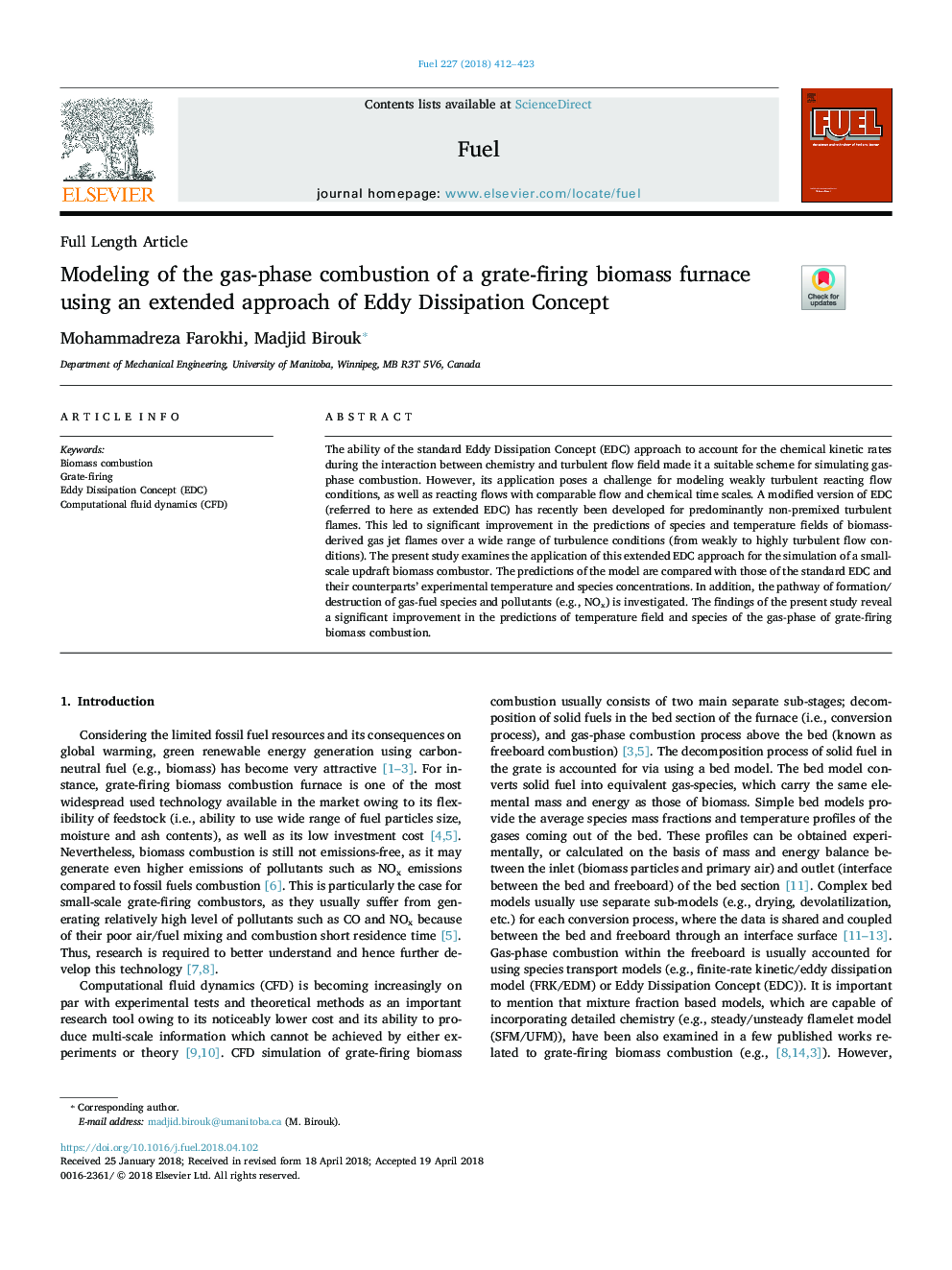| Article ID | Journal | Published Year | Pages | File Type |
|---|---|---|---|---|
| 6630834 | Fuel | 2018 | 12 Pages |
Abstract
The ability of the standard Eddy Dissipation Concept (EDC) approach to account for the chemical kinetic rates during the interaction between chemistry and turbulent flow field made it a suitable scheme for simulating gas-phase combustion. However, its application poses a challenge for modeling weakly turbulent reacting flow conditions, as well as reacting flows with comparable flow and chemical time scales. A modified version of EDC (referred to here as extended EDC) has recently been developed for predominantly non-premixed turbulent flames. This led to significant improvement in the predictions of species and temperature fields of biomass-derived gas jet flames over a wide range of turbulence conditions (from weakly to highly turbulent flow conditions). The present study examines the application of this extended EDC approach for the simulation of a small-scale updraft biomass combustor. The predictions of the model are compared with those of the standard EDC and their counterparts' experimental temperature and species concentrations. In addition, the pathway of formation/destruction of gas-fuel species and pollutants (e.g., NOx) is investigated. The findings of the present study reveal a significant improvement in the predictions of temperature field and species of the gas-phase of grate-firing biomass combustion.
Related Topics
Physical Sciences and Engineering
Chemical Engineering
Chemical Engineering (General)
Authors
Mohammadreza Farokhi, Madjid Birouk,
